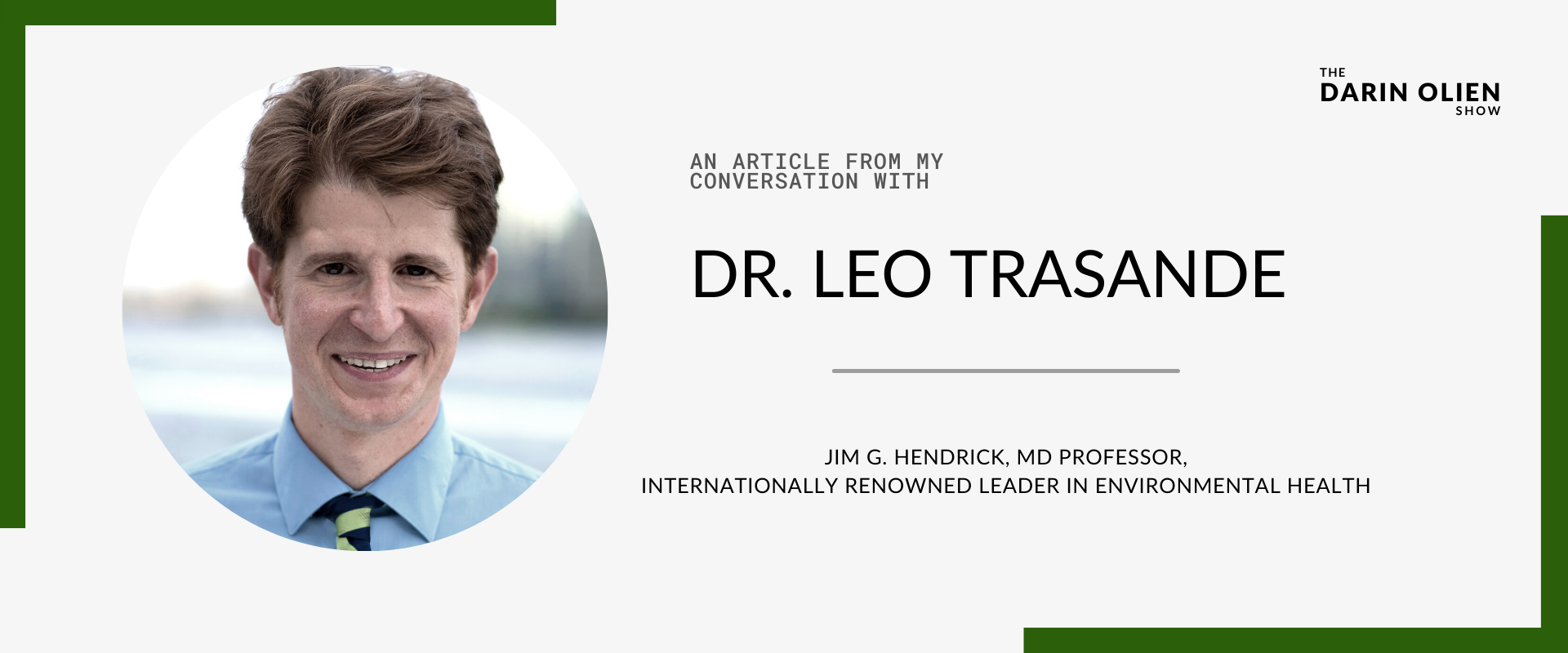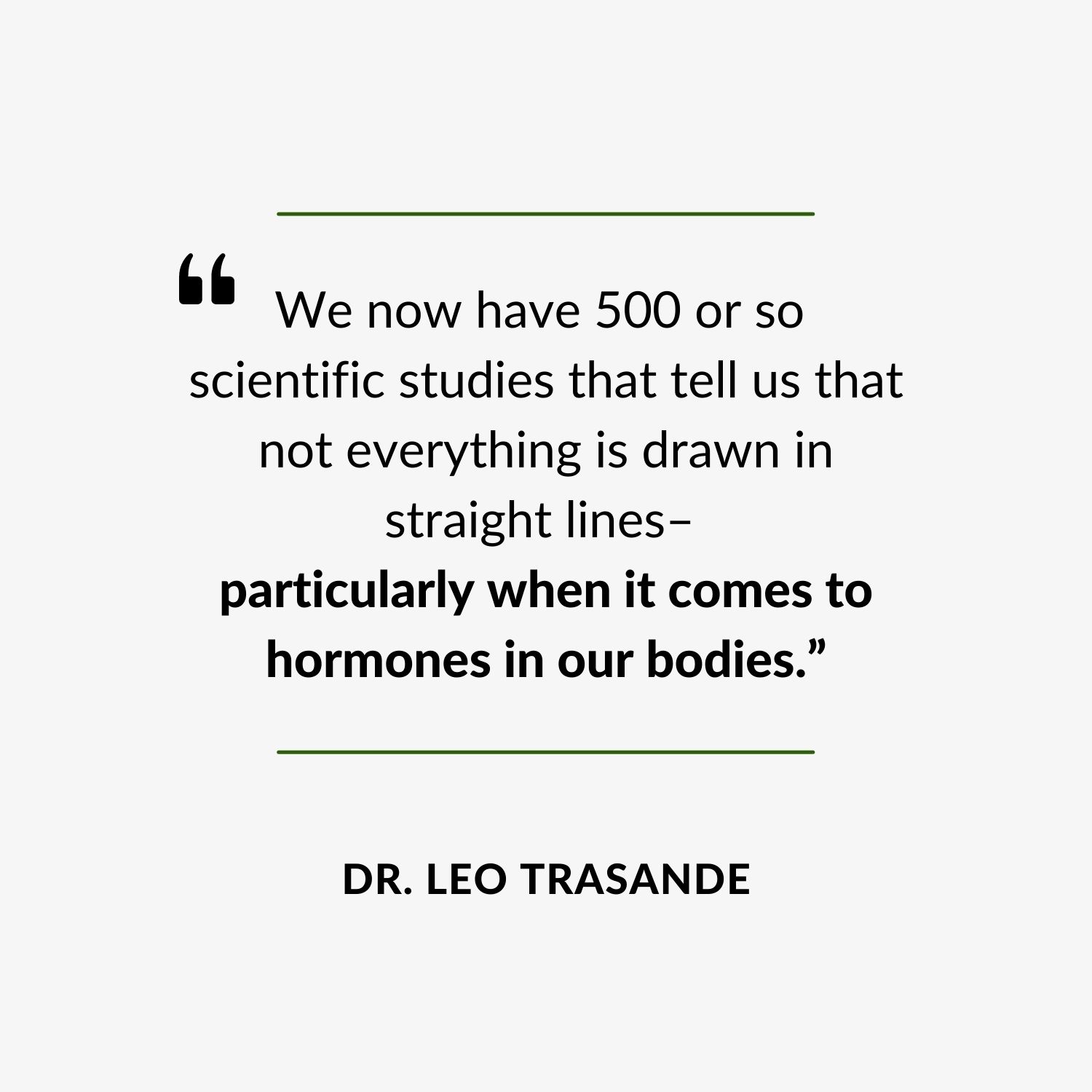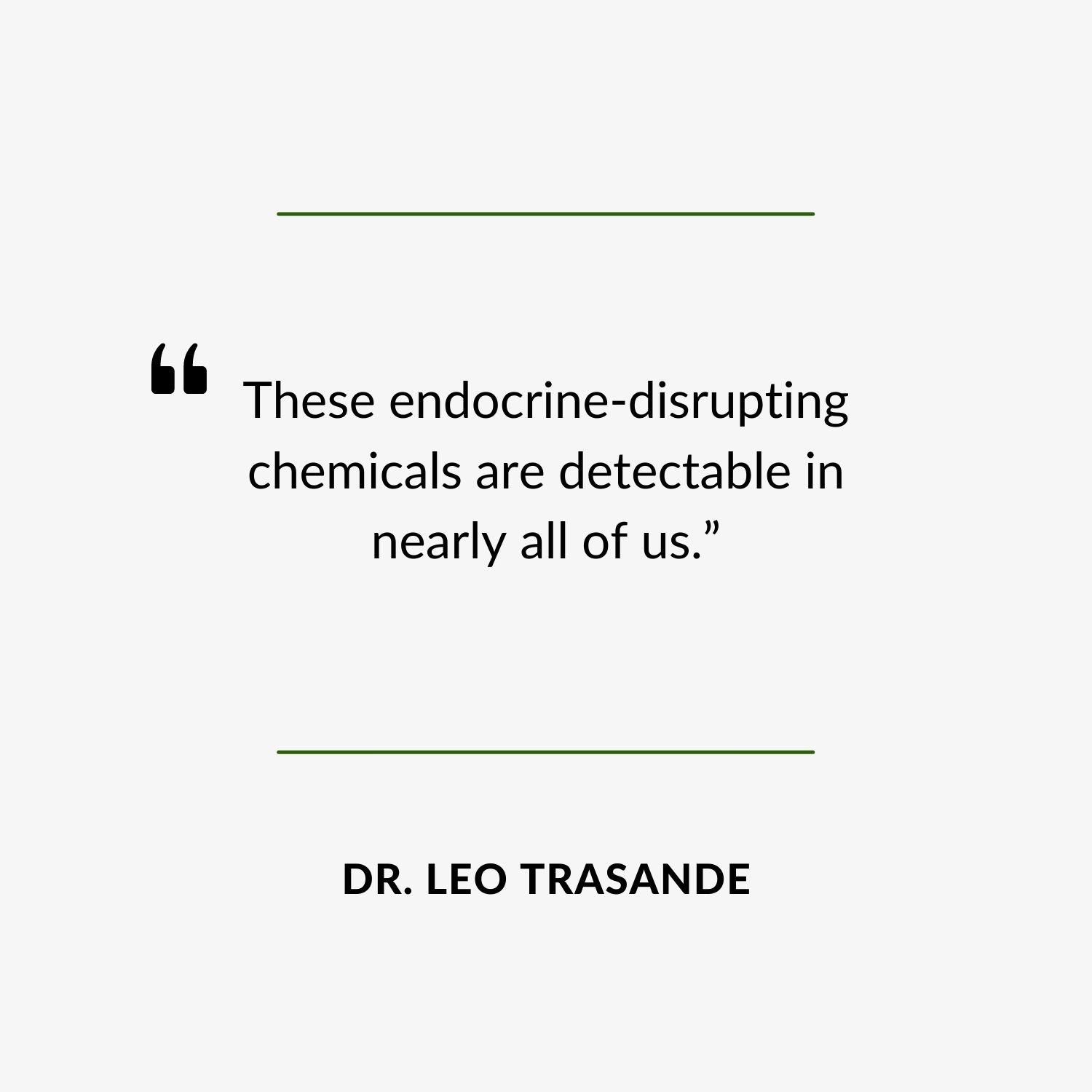02 Jun How to Avoid the Chemicals that Are Messing With Your Hormones

Podcast: Play in new window | Download
Subscribe: RSS
Did you know that a large amount of the products we use every day are filled with invisible endocrine-disrupting chemicals? These toxins creep into your bloodstream via food wrappers, plastic water bottles, makeup, and cosmetics products. Then, they change the chemical makeup of your endocrine system. They mess with your hormones, preventing them from doing their job effectively.
On a recent episode of The Darin Olien Show,
I sat down with Dr. Leonardo Trasande, a world-renowned leader in environmental health. He is the Director of the Division of Environmental Pediatrics and Vice-Chair for Research in the Department of Pediatrics at NYU School of Medicine. Dr. Leo also serves on the faculty of the NYU Wagner School of Public Service and the NYU College of Global Public Health. The main focus of his research is the impact of chemicals on the hormones in our bodies. He’s led the way in documenting the economic costs of the failures of policymakers to prevent diseases caused by environmental factors.
Dr. Leo’s book, Sicker Fatter Poorer: The Urgent Threat of Hormone Disrupting Chemicals on Our Health and Future and What We Can Do About It, is a guide to avoiding endocrine disruptors and reversing their damage. This book is not only eye-opening, but it gives a real sense of hope for the future. We can identify these endocrine disruptors and take them out of our lives. It’s just going to take some collective awareness on our part.
Hormones 101 
The first step to understanding how dangerous endocrine disruptors are is to understand the role of hormones in your body. Think of your hormones as your body’s chemical messengers. They travel through your bloodstream to all your tissues and organs. Hormones have a hand in several different bodily processes, like growth and development, metabolism, sexual function, reproduction, and overall mood.
The endocrine glands are responsible for making and secreting hormones. Endocrine glands include the pituitary, pineal, thymus, thyroid, pancreas, and adrenal glands. If you’re a man, hormones are also produced in your testicles. And if you’re a woman, hormones are also produced in your ovaries.
Every hormone in your body is extremely powerful. Just a small amount of hormones can cause big changes in your cells, and in turn, your whole body. That’s why hormonal issues can be such a serious problem. While doctors can give you blood or urine tests to determine your hormone levels, they may not be able to determine what’s causing your hormonal issues. The truth is, our environment can severely impact our hormones.
How Do Endocrine Disruptors Mess With Hormones?
One of the biggest negative environmental impacts on human hormones is endocrine disruptors. According to Dr. Trasande, “Endocrine disruption is possibly the second greatest health challenge of our time.” These invisible toxins exist in plastics, foods, cosmetic products, and the majority of products on store shelves. “We assume a little bit of everything is fine,” Dr. Leo explains. “Everything in moderation. But what we know now is that the lowest levels of exposure can have the biggest effects of toxic chemicals in our daily lives.”
All these chemicals are changing the hormones in our bodies. If hormones are chemical messengers, endocrine disruptors are changing the message they send. These horrible disruptions can lead to tumors, birth defects, and all kinds of developmental and health issues. The bottom line is, that we need them removed from the products we consume.
Avoiding Endocrine-Disrupting Chemicals
Besides the obvious ways to avoid chemicals like washing your hands and vacuuming your home, there are certain ingredients to look out for when reading labels on your favorite products. Some endocrine disruptors to look out for are:

- BPA in plastics
- Dioxin in meat, fish, and dairy products
- Atrazine in corn products
- Phthalates in plastic food containers, water bottles, toys, and some personal care products
- Perchlorate in prepared and packaged foods
- Flame retardants in furniture, rugs and carpet pads
- Lead in paint
- Mercury in fish
- PFCs in non-stick pans and cookware
- Pesticides and herbicides in conventionally grown produce
- Glycol ethers in cleaning products
I know this list is probably overwhelming to read through. Because these dangerous chemicals are everywhere!! It’s going to take real change from the people in power to remove them for good. But the good news is that the more aware you are, the more proactive you can be in your life to avoid these endocrine disruptors. The biggest culprit of all is plastic. So, if you could make one change in your everyday life to save your hormones, stop using plastic. Be mindful of how you store your food and don’t buy bottled water. Big change starts with small tweaks.
To hear more about endocrine disruptors and how to avoid them,
check out my entire conversation with Dr. Leo Trasande on The Darin Olien Show.
Podcast: Play in new window | Download
Subscribe: RSS




Sorry, the comment form is closed at this time.